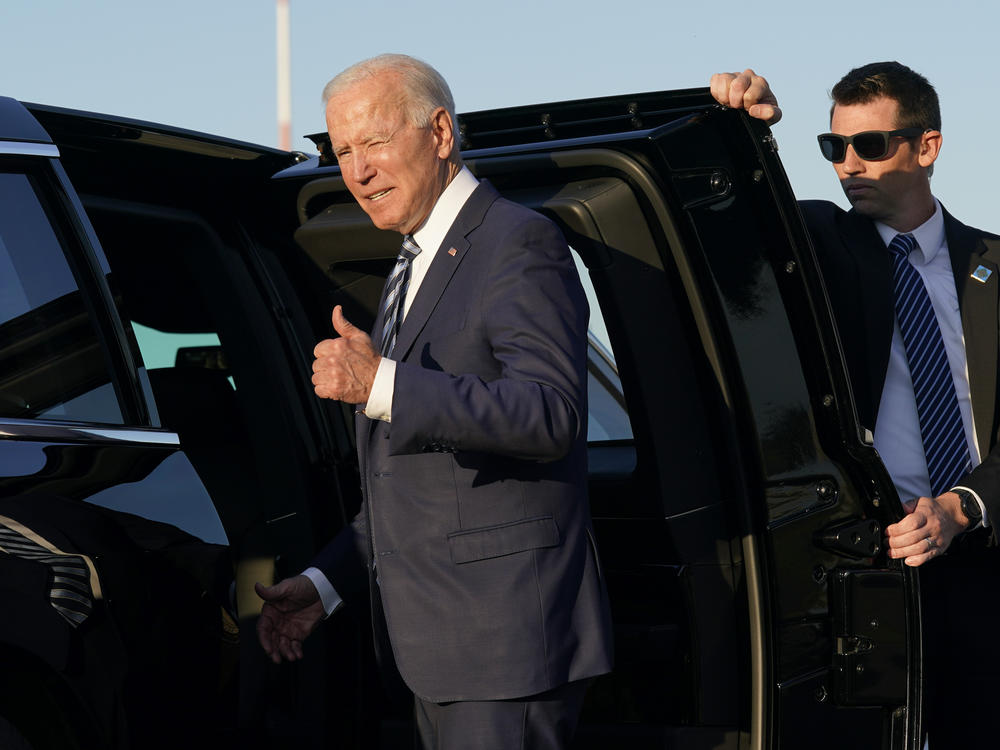Section Branding
Header Content
Biden To Announce Plans To Donate 500 Million Pfizer Vaccines To Countries In Need
Primary Content
President Biden is set to announce Thursday that the United States has bought 500 million doses of Pfizer's COVID-19 vaccine to donate to COVAX, which is distributing vaccines to countries that cannot afford to buy enough shots, a source familiar with the deal confirmed to NPR.
The news comes after Biden's arrival Wednesday in England on the first foreign trip of his presidency. He has said he wants to use the eight-day European trip to marshal a plan with other G-7 nations to help end the pandemic around the world.
"We have to end COVID-19, not just at home, which we're doing, but everywhere," Biden told troops Wednesday during his stop at Royal Air Force Mildenhall.
The vaccine giveaway signals a growing role for the United States in the global vaccination effort and comes on the heels of Biden's promise to share 80 million additional doses by the end of June with COVAX and other countries.
The World Health Organization and foreign leaders have been urging wealthy countries, which have secured the lion's share of the global vaccine supply, to up their contributions, especially those with excess doses such as the United States.
The new donation will see 200 million shots delivered this year, and 300 million in the first half of 2022, the source said, speaking on condition of anonymity ahead of the announcement.
"It represents another significant step in the right direction," says Dr. Krishna Udayakumar, director of the Duke Global Health Innovation Center. "If we see a full U.S. strategy for global vaccination announced at the G-7 Leaders' Summit, as well as coordinated, substantive action across G-7 members and the EU, this week could represent a turning point in the pandemic."
The COVAX program — co-led by WHO — has struggled to secure enough shots to meet its goal of ensuring that 20% of the world's population is vaccinated by the end of the year.
About 2 billion shots have been administered worldwide — the vast majority in high-income and upper middle-income countries.
"It's another data point that illustrates that Biden is serious about the U.S. playing a leadership role in ending this pandemic," says Dr. Junaid Nabi, a fellow at the Aspen Institute and senior researcher at Harvard Business School. "This should also encourage European/G-7 countries to play a more active role in this global health crisis, as they have been very slow in responding and contributing toward this global public good."
NPR's Tamara Keith contributed to this report.
Copyright 2021 NPR. To see more, visit https://www.npr.org.

